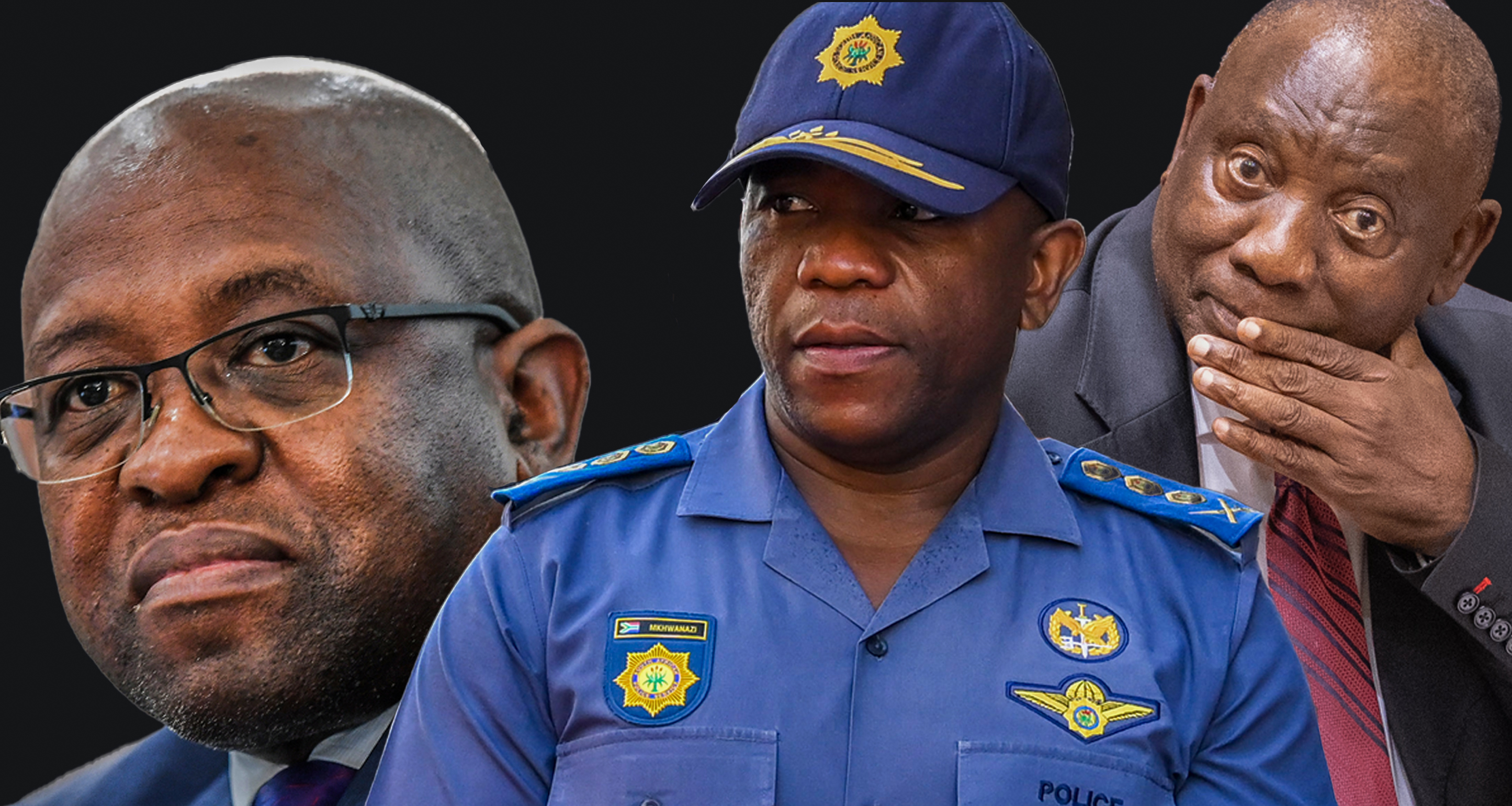President Cyril Ramaphosa recently established a judicial commission of inquiry, chaired by Acting Deputy Chief Justice Mbuyiseli Madlanga, to investigate Lieutenant General Nhlanhla Mkhwanazi’s allegations that “sophisticated criminal syndicates have infiltrated law enforcement and intelligence structures in South Africa”.
Naturally, much of the attention has been on the toxic relationship between ANC politicians, corrupt businesspeople and the country’s top police structures.
However, while it is tempting to believe that this is just another example of the rot infecting the South African state, this would be a mistake, because these activities are not an aberration of South Africa’s weak state but rather an outcome of the dysfunctional democratisation process that has unfolded in the country over the last few decades.
Gatekeeper state
In common with many other post-independent African states, South Africa transitioned from the horrors of colonialism and racism into being a gatekeeper state. In these fragile states, the control of access to wealth and power, rather than governance, is the ultimate political prize.
Over time, state wealth and power are increasingly centralised and contested among the elites, while service delivery and governance for most of the population languish at the periphery.
Political authority is therefore less about guiding national development and more about managing the intersection between internal resources and external recognition.
At its core, a gatekeeper state revolves around who controls the “gate”. In South Africa, this gate was historically guarded by the ANC so long as there was uncontested electoral recognition.
Governance, in this framework, becomes a zero-sum game where controlling the gate is paramount because losing power means losing access to wealth. This has irredeemably reshaped the internal dynamics of the ANC, fuelling factionalism as different groups within the party compete for control of shrinking state resources.
Consequently, the government is increasingly unable to meet its service delivery obligations because public office is not about public service but is instead a means of ensuring financial rewards, and because service delivery is not about optimal provision within the budgetary limits but is instead a means to garner political loyalty.
Over time, as the ANC's factional battles worsened, the ANC’s response has been to centralise control, consolidating authority in the Presidency, marginalising Parliament, and actively eroding independent institutions.
However, as the ANC’s electoral support has declined, gatekeeping, instead of weakening, has decentralised and now infects both formal and informal political-economic structures. The consequence of this system is neo-patrimonialism — ruling by patronage rather than by policy — that replaces governance as hollowed-out formal institutions are replaced with informal networks based on political allegiance and reciprocal favours.
Loyalty is rewarded not through public service delivery or national development, but instead by access to tenders, jobs, and contracts. As the electorate loses faith in political leadership, political support is “purchased” via patronage networks rather than earned through effective governance.
Violent democracy
The implications for South Africa’s democratisation have been grim. In the years of the Zuma-Ramaphosa presidencies, South Africa has undergone a second transition, away from the ideals of a constitutional democracy, first into a gatekeeper state, and increasingly into what academics call a “violent democracy”.
This is not merely a democracy with violence. In this aberrant form of democracy, violence is an implicit part of the political system. Assassinations, intimidation and State Capture are features of how power is contested, contained, and controlled.
In a violent democracy the state does not have the sole legitimate right to use violence — instead elite coalitions, criminal networks, and even taxi associations can use violence to capture and replace democratic governance. Naturally, as violent democracy deepens, constitutional democracy weakens.
South Africa’s democratic institutions, once the pride of our post-apartheid dispensation, are now infected with corruption, inefficiency and decay.
The ANC cannot be reformed, but whether the Government of National Unity can resurrect the democratic institutions of accountability and reverse the country from its dark path remains to be seen.
If not, then the dream of a free, fair, and equal South Africa will likely become just another casualty of rapacious greed. DM
Professor Sean Gossel is the deputy director of curriculum at UCT’s Graduate School of Business.




 Illustrative image | Justice Mbuyiseli Madlanga. (Photo: Felix Dlangamandla / Gallo Images / Daily Maverick) | Lieutenant General Nhlanhla Mkhwanazi. (Photo: Darren Stewart / Gallo Images) | President Cyril Ramaphosa. (Photo: Misha Jordaan / Gallo Images)
Illustrative image | Justice Mbuyiseli Madlanga. (Photo: Felix Dlangamandla / Gallo Images / Daily Maverick) | Lieutenant General Nhlanhla Mkhwanazi. (Photo: Darren Stewart / Gallo Images) | President Cyril Ramaphosa. (Photo: Misha Jordaan / Gallo Images)